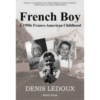Over the years, we at the Memoir Network have helped many, many people to turn memories into memoirs. It has been a labor of love—sometimes we sent a shower of kudos, sometimes of tough love. As a result of this collaboration, we now have many shelves of books we have midwifed into existence and are able to offer you interviews with memoir writers who have been successful in producing interesting and meaningful stories.
Our many questions
How appropriate then to have a series of interviews with memoir writers whose books have brought them the satisfaction and audience they so desired.
What was it like for them to write? What were their hard moments? How did they reach their audiences? How were their books received? What would they do differently next time?
We hope to support you, too.
We hope this series will not only honor the many writers we feature in these interviews with memoir writers but support you in your own writing efforts so that, one day, you, too, will be a featured in this series of interviews with memoir writers.
Writing need not be accepted as a lonely and isolating experience. It can be that and much of our writing time is spent alone, but we can also participate in a community of writing that is available at such places as on this blog. This series of interviews with memoir writers is an excellent opportunity for you to join a community, a fellowship, that will keep you energized. If these people could not only write and publish a book but reach an appreciative audience , then why couldn’t you—someday, sooner than you now think possible.
In conclusion
To read the stories written by many of the people included in “Interviews with Memoir Writers,” visit the Anthology of Memoir Writing.

Interview with Dana Tramba / Making Peace With The Pieces of My Life
Denis Ledoux: Can you tell our readers what your book, Making Peace with the Pieces of My Life, is about and why you were compelled to write your book? What was driving you to spend the time, energy, and money to get this book out into the world? Dana: I wanted to reach the divorced […]

Interview with Denis Ledoux French Boy / A 1950s Franco-American Childhood
DL: The following interview I conducted with myself is available to anyone wishing to reproduce it in a blog, on a website on in print media. We ask only that you let us know you are using the piece. Q. Can you tell our readers what French Boy is about and why you were impelled to write […]

A Year in China with the SARS epidemic
Denis Ledoux: At The Memoir Network, we had the pleasure of working with Nelida Napuli Co as she polished her memoir, Vinegar and SARS, with one of our editors, Frances King, and focused on book production with Sally Lunt. Because of her insightful articulation of a unique experience—living in China during the SARS epidemic, I […]

Don’t Worry About a Thing / Katherine Sullivan
Denis Ledoux: At The Memoir Network, we had the pleasure of working with Katherine Sullivan for several years as she edited her memoir, Don’t Worry About a Thing, with one of our editors, Frances King, and focused on book production with Sally Lunt. Because of her insightful articulation of her life experience, I am delighted […]

Surviving Childhood Abuse: a Neglected Child – Part 3
In this third interview, Denise Brown continues to share her experience of writing Transcending Darkness: A Memoir of Abuse and Grace. This is a startling tale of a neglected child —of an entirely neglected family. To read Part 1, click here. For Part 2, click here. —DL DL: How do you recommend people deal […]

Surviving Childhood Abuse: Overcoming Trauma- Part 2
We continue our interview with Denise Brown about writing and publishing her book, Transcending Darkness: A Memoir of Abuse and Grace. Hers is a heroic story of overcoming trauma. To read part 1, click here. To read Part 3, click here. —DL DL: You must have had periods of time in which you were discouraged […]

Surviving Childhood Abuse: A Writer’s Experience
Congratulations to Denise Brown on the publication of her book, Transcending Darkness: A Memoir of Abuse and Grace. I recently had the opportunity to interview Denise about her experience writing her book on surviving childhood abuse. I am pleased to share her experience. To read Part 2, click here. To read Part 3, click here.—DL […]
![How to Write A Successful Memoir: Stepping Stones [Part 1] substance use](https://thememoirnetwork.com/wp-content/uploads/2020/12/stepping-stones-600x600-1-100x100.jpg)
How to Write A Successful Memoir: Stepping Stones [Part 1]
Today’s guest writer is Marilea Rabasa for whose memoir Stepping Stones I had the pleasure of writing a book blurb. Her story—a journey of self-discovery through the hell of substance use disorder— is a moving one. Today we offer the first half of the email interview we conducted with her. The second half will follow […]

How to Write a Successful Memoir: One Memoir Writer’s Experience
Congratulations to author Dennis Blue who received the 2019 Christian Indie Award in the business category for Through the Eyes of a Fisherman. Dennis is truly one of those authors who was a pleasure to work with. He brought much thoughtfulness to bear on his task, and we are so proud to see his efforts […]
